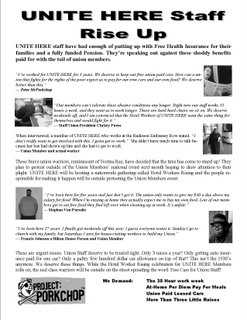Tales of the Useless and Insane
Reflections on Feral Visions Against Civilization 2005
by The Wildroots Collective
Green Anarchy
The third annual green anarchist gathering took place july 27-august 3 in the southern appalachian mountains of east tennessee. Dubbed ‘Feral Visions against Civilization', the week-long event combined group discussions on everything from primitivist theory and physical resistance to Civilization, to primitive and earthbased skillsharing.
Along with the typical off and on rains of summer, the mountain air kept us cooler than the rest of the humid south. A meandering creek surrounded the site, offering plenty of dipping opportunities and convenient daily bathing. Bare feet were comfortable in the grassy meadows and muddy trails, and the flat terrain made for easy packing in and out of the locally popular National forest site. A communal kitchen was set up at the head of the camp, with volunteers cooking two daily meals for 100+ folks, FOR FREE! An ‘infoshop' area was set up where Green Anarchy magazine, Black and Green distro, and several other distros from around the country offered reading materials relating to primitive skills and anticiv theory and resistance.
Multiple workshop areas were designated for a wide variety of activities, both hands-on and theoretical. A specific area called "'Empathy Camp"' was maintained with a focus on emotional healing and support. A hide-tanning area offered materials and instruction through the entire week for the handful of folks who took on the multi-day task of tanning a deer hide. Others observed a bear hide tanning project, and yet others skinned and began tanning small mammal pelts that were brought in to the gathering as roadkill.
Workshops explored skills ranging from baskets made from tulip poplar bark that was harvested on site, friction fire-making, primitive weapons and traps, debris hut construction, rivercane flutes and blowguns, bamboo utensils and cordage making, to wool felting, permaculture, and fermented vegetable and mead making. Discussion topics included radical mental health, spirituality, gender dynamics in rewilding communities, ‘radical relationships', ‘primal parenting' and indigenous struggles against Civilization, as well as climate change and peak oil. A "'Beyond Activism"' discussion was by far the longest of all, with much examination of definitions of and motivations for activism, as well as pitfalls and benefits of participation in movements and campaigns. Another discussion that delved into anti-civ resistance looked at the question of physical confrontation against the megamachine. What seemed to some at the beginning to be a discussion on tactics and strategy for weakening infastructure, to others this approach itself was worthy of debate. Examining questions of effectiveness of and motivations for an approach of "'aided collapse"' alternated with (theoretical, of course) info-sharing on tactical and logistical priorities and challenges.
Continued...



